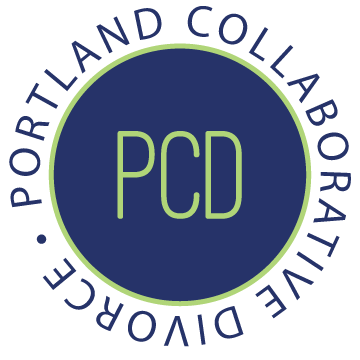Are you considering the Collaborative process for your divorce? If you’re reading this blog on the Portland Collaborative Divorce website, it’s quite possible.
Read MoreDivorce is always stressful. Traditional divorce litigation is an adversarial process that pits the spouses against each other, each trying to be the winner. In most cases, when it is all over, neither party feels like the winner.
Read MoreCo-parenting is a relationship between two adults who together share the responsibility of raising a child or children. Typically, it is a relationship between the two parents who share all the aspects of raising a child.
Read MoreThere is no waiting period for a divorce in Oregon. In some cases, the court may sign a judgment the date is e-filed, in other cases it may be several months from e-filing before it is signed by a Judge.
Read MoreYou and your spouse are separating -- either because you agreed or because one of you decided for both of you. Regardless of which camp you fall into, I imagine you might:
Read MoreContrary to popular myth, premarital agreements (also known as prenuptial agreements) are not just divorce-planning documents used when one partner has significantly more assets than the other.
Read MoreFar too often, divorcing couples use the traditional adversarial litigation process which focuses on the needs of the adults. The needs of the children are pushed aside while parents fight over child custody and parenting time.
Read MoreAcross Oregon, our courts have closed and trials and hearings are postponed through mid-summer due to the COVID-19 pandemic. The Multnomah County presiding court provided an update on April 2, 2020 over Zoom Online Conferencing and the attorneys in the county were advised to avoid court filings absent an emergency.
Read MoreGetting a divorce might seem more complicated now than it used to be. There are certainly more choices to be made on the front end. Should we use mediation? Or Collaborative Law? Or the traditional court system?
Read MoreCo-parenting during and after a divorce transition can be challenging. So many strong emotions, potential mistrust, and conflicts. It can seem daunting for parents to steer clear of all of these personal emotions and perspectives to remain focused on communicating, cooperating and coordinating on behalf of your child. While you may have the best of intentions to stay on the high road, in a flash, you may find yourself in the dark valley of conflict and power struggles.
Read MoreA key attraction of collaborative divorce is that clients have the opportunity to work together with each other and with professionals as part of a team to meet the needs of the family. This is in contrast to a traditional litigation model, which is adversarial and positional in nature.
Read MoreAt the first session of one of my first collaborative cases, the clients came in with a copy of an article from the New York Times about “nesting” - a parenting arrangement where the children continue to reside full-time in the family home and the parents take turns being with the children.
Read MoreImagine: You’re a lawyer retained by a new client who wants a divorce. Now you’re faced with making first contact with the other lawyer. How will that call go? What can you expect?
Read MoreAt long last, Collaborative Law is finding its legs in Portland.
The number of professionals offering a non-adversarial option for divorcing couples is growing rapidly. There are an increasing number of lawyers, mental health professionals, child specialists, and financial planners specializing in collaborative law practice, including some of Portland’s most prominent family law attorneys.
Read More








